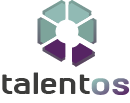Can you find the best data science jobs just by applying for regular offers? There are a few tips & tricks that you can use to improve your profile and make it more attractive and more competitive. And we are experts in recruiting IT profiles, so there is a couple of things we know. Here is a detailed list of all the features you can try and match to be the best data scientist in a selection process.

What specifically is a data science job?
A data scientist is a professional dedicated to analysing and interpreting large databases.
The objective is to convert this unstructured or structured information into valuable insight.
Data Science combines tools from mathematics, statistics and/or computer science.
The origin of this large amount of data is practically any human activity. Especially all information linked to the internet. This is what is known as Big Data.
In addition, the increasing use of IoT and IoB brings even more high-quality data.
What does a Data Scientist do in a company?
The functions of roles in data science jobs vary from one organization to another. They might include:
- Data extraction. Obtaining all the information is considered important and useful.
- Data cleansing. Eliminate all information that is not relevant and prepare the data for processing.
- Data processing. Treat data by applying statistical approaches, analytical software, Machine Learning, predictive models, etc. to obtain valuable information.
- Data visualization. Making the data outputs easily understandable by non-technical profiles.
- Show and interpret the results in an accessible way for people who do not have data sc knowledge or don’t know what conclusions arise from the data analysis.
How to find data science jobs?
Find out your end goals
A data scientist can perform several types of tasks. Focus your projects on the areas that you really enjoy. For example, the type of data you will be working with will be different depending on the sector or the size of the company you work for. In an insurtech, you are going to be working with demographics and transactions, while in agriculture you are going to be working with climate and geo variables.
Studies and training
Good training in data science is essential to getting a job in this sector.
One advantage is that there are not too many people with data science training to meet the needs of companies, since the job position is relatively recent. That doesn´t mean there is no competition though, but having knowledge in this area might be a very sensible professional path.

Ideal skills to become a data science professional
- Training in mathematics. Especially calculus and algebra
- Extensive knowledge of statistics and probability calculus.
- Proficiency in programming languages: MySQL, SQL, R or Python
- Data visualisation tools: Tableau, Seaborn or Matplotlib.
- Predictive modelling.
- Knowledge in the field of Machine Learning.
- Agility and creativity in problem-solving.
- Know how to communicate conclusions and business results, so communication skills.
- Curiosity for data, business, sectorial challenges etc.
In general, a great hack for getting data science jobs, especially in a big company, is to go to LinkedIn and look for the same job positions that are already covered by other people. Then browse to their current job in the company and check the description of their tasks. There you have it, the reality of the job, what they are actually doing and you are most likely going to be asked to do too.
Then you can check if your CV matches those, but if it doesn’t, don’t make it up!
Learn a programming language
Whether you choose to study a formal or self-taught course, you should know one or more programming languages.
Ideally, you should know one perfectly well first and then expand your knowledge to other languages.
With the constant evolution of data science, it is important to be proficient in cutting-edge technologies in the field.
Let’s look at the main programming languages used in data science.
Python
Python is one of the most powerful and flexible languages available. The main reason is its simple syntax coupled with a large number of third-party libraries.
R
R is an open-source programming language created in 1993 that is used for statistical computing, data analysis and machine learning.
Like Python, R is an interpreted language, so you can run your code without the need for a compiler. Also, R is cross-platform, so you don’t need to worry about your operating system.

Julia
Julia takes the best of languages like Python, Ruby, Lisp and R, combines it with the speed of C and includes familiar mathematical notation like Matlab.
One of the main advantages of Julia is its speed.
These are just three of the most important for this sector. However, it is important to be always up to date and to be trained in new knowledge.
Other programming languages relevant to data science
Here you have some more programming languages knowledge:
- Java
- Javascript
- C++
- PHP
- C
- Arduino
- Matlab
- SQL
- CSS
- Node.js
Some tips to improve your profile as a data science pro
Create your own data science project
It is possible that sometimes the desired offers are not available. Also, you may be going through a difficult period of crisis or recession and it may be difficult to find a job.
However, this is no excuse. There are a wide variety of projects that can be initiated in this sector on a personal basis.
Here are a few examples of Data Science Projects
This will allow you to add initiatives to your curriculum, train your knowledge and learn by doing, without having to wait for a company to hire you.
Join a data science community
As in any sector in which you want to work, relationships are key to finding new job opportunities.
Therefore, finding a place to discuss, debate and share knowledge is essential.
Here are some of the most important communities for data scientists.

IBM Data Science Community
The IBM Data Science Community offers a wealth of up-to-date information, including featured blogs and forums for discussion and collaboration.
The community provides access to the latest white papers, webcasts, presentations and research exclusively for members,
It is a social network characterised by its large number of discussion forums on various topics.
Data science communities are particularly active on this social network. It is possible to find a great deal of information and solutions.
It is therefore a great way to meet people in the sector and build relationships with them. Join Reddit’s data scientist community
Kaggle
Kaggle is a coding tool, but the software is so popular that it has one of the largest data science communities in the world.
This website allows you to find and publish datasets, explore and build models in a web-based environment. It also allows you to share your work with other scientists and engineers.
The site also has competitions to test yourself and compare with other data scientists.
Create a data science portfolio
Having a public portfolio of solved projects where you demonstrate all your skills can be the key to finding a job as a data scientist.
You know, it aligns with the strategy of being found, rather than looking for.
A portfolio can be static posts on your LinkedIn profile or on your blog, where you showcase your completed work. Or you can develop a whole website, presentation or video explaining it. I really it’s up to you.
But regardless of the format, the basis of them all is the same: monitoring and documenting a data science project from start to finish to show what you know.
Some tips on how to create a portfolio;
- Use your own real data.
- Feed it with data from the internet.
- Choose a topic you like and are interested in, a real problem to solve or look at.
- Create graphics that appeal to people. Find conclusions, and explain them. Data is nothing without insight.
Here are some examples of the best portfolios of data scientist projects
Create your specific cover letter for data science jobs
From your expertise to your qualification, it should include everything regarding your profession.
Here you can share your experience, your concerns and your interests. Your intentions about future projects or training you would like to carry out.
You can add it every time you submit your CV to an open job position, or when you send a spontaneous application.
Data scientist vs data analyst. What are the differences?
A data scientist is a level above a data analyst. He/she has more advanced knowledge of the field and technologies.
The data scientist can create algorithms to narrow down, define or refine the entire data collection, to improve the project. He is able to develop his own programming models.
We could say that the analyst is a specialist in extracting information from data and consequently presenting it in an understandable way to the business world.
The data scientist has much more responsibility and duties than the data analyst. Because they not only present conclusions but propose iterations and decisions that are most likely going to affect the course of business and/or products.
As a result, the salary of a data scientist is usually significantly higher.
How much does a data scientist earn?
Salary will largely depend on the company you work for, the geographical region, your experience and several other factors.
The average salary advertised in data science jobs in the UK is £63,723 according to Reed.co.uk.
However, this is only an average and the range varies widely. Salaries can start from £40,000 and can soar to over £150,000.

Data scientist jobs & offers examples
The following are examples of responsibilities taken directly from actual job offers:
- Descriptive and predictive Analytics
- Development: selection, definition and execution of adequate algorithms, models, tests, visualizations, etc.
- Technology: Selection, definition and execution of adequate programming environments, file formats, data storage solutions, automatic data flow, etc.
- Architecture: Define and/or follow best practices for Big Data use cases while extracting, transforming, storing and feeding data to/from different data sources using private and public cloud architectures.
- Innovation: Know and keep updated on the state-of-the-art techniques, models, programming environments and technical approaches for different Data Science problems
- Extensive knowledge of data processing for large datasets
- Strong interpersonal skills with the ability to collaborate, network and build strong relations with team members and stakeholders
- Independent problem-solver, including an ability to self-learn new techniques/tools as needed
Conclusion
As we have seen, data science is one of the most in-demand professions today and with very high salaries. With the current digital transformation and the growing interest of companies in data, it does not seem that the trend will change.
It is likely that with the emergence of new technologies and applications the profession will become more and more specialized. This will increase salaries and make the profession even more interesting. So if you are interested in the field and have the innate skills needed to work with data, algorithms and business inquiries, you sure should consider this career path!
If you need some guidance on how to become a data scientist, talk to us. We can help you: not only to find a good job now but to engineer a life path that leads you to a satisfying professional outcome in the next 1-3-5-10 years.


Recent Comments